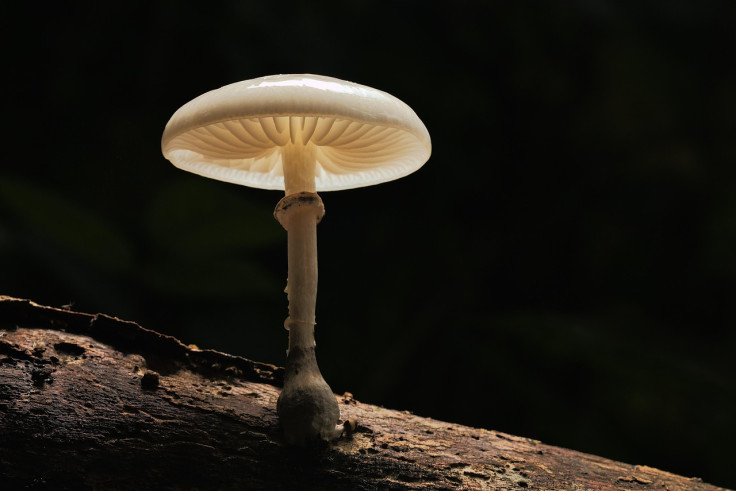'Death Cap Mushroom Lady' Accused Of Poison Plot After Lying About Cancer To Lure Guests
Court debates whether Erin Patterson deliberately poisoned family with death cap mushrooms or caused tragic accident.

What began as a family lunch under the pretence of a health scare ended in tragedy. Erin Patterson, now on trial for murder in Australia, is accused of lacing a homemade beef Wellington with deadly mushrooms she allegedly foraged herself—killing three relatives and leaving one critically ill.
What's worse is that prosecutors claim she lied about having cancer to lure her estranged husband's family into a fatal trap, in a case that has gripped the world.
A Family Gathering Turned Deadly
On 29 July 2023, Erin Patterson invited her estranged husband's relatives to her home in Leongatha, Victoria. She claimed she wanted to discuss a health scare, falsely telling her guests she had been diagnosed with cancer. Her real intentions, prosecutors allege, were far darker. Prosecutors say she had chosen to serve a meal containing deadly wild mushrooms, with the aim of causing harm. The meal was a beef wellington, a dish that includes mushrooms as ingredients, which she had foraged herself, according to the prosecution.
Within hours of the lunch, the guests began to fall ill. Gail and Donald Patterson, both aged 70, along with Gail's sister Heather Wilkinson, 66, were admitted to hospital with severe symptoms. Heather's husband, Ian Wilkinson, was also at the gathering but survived, although he endured weeks of treatment. The hospital diagnosed mushroom poisoning, prompting a police investigation that uncovered disturbing details about the meal's ingredients.
What does the evidence suggest?
Prosecutors say that Patterson deliberately used death cap mushrooms—a highly toxic wild fungus—as an ingredient. Cell phone data revealed she had visited an area known for death cap sightings, and online posts showed she had previously dehydrated mushrooms, possibly for cooking. Surveillance footage showed her disposing of a dehydrator at a local dump, which later tested positive for traces of the deadly fungi. Prosecutors say that she initially lied to police, denying she foraged mushrooms or owned a dehydrator, but evidence painted a different picture.
Despite her claims of innocence, the court heard that Patterson had travelled to where death cap mushrooms grow, and her online activities suggested she had been preparing to use mushrooms in her cooking. Her own hospital tests, however, did not show severe poisoning, and she left the hospital against medical advice, further raising suspicion.
The defence claims it was a terrible accident
Patterson's defence team admits she foraged mushrooms and lied to police, but insists she did not serve them intentionally. Her lawyer, Colin Mandy SC, argued that her actions were driven by panic, not malice. 'The defence case is that Erin Patterson did not deliberately serve poisoned food to her guests,' he said. 'What happened was a tragedy, a terrible accident.' Mandy explained that Patterson was overwhelmed when her guests became so ill, and her behaviour afterwards was a response to the chaos.
The defence also said that Patterson had lied about owning a dehydrator and her foraging activities because she 'panicked'. They ask that the jury consider how someone might react in such a shocking situation, rather than assuming intent to kill. Patterson has pleaded not guilty to all charges, and her legal team insists she is innocent of murder.
Investigation and Motive
Evidence was presented that Patterson had invited her estranged husband, Simon Patterson, but he declined to attend, citing discomfort about the gathering. The court learned she served her guests on different-coloured plates, with her eating off a separate dish, which was later noticed by Heather Wilkinson who fell ill. The witnesses described how quickly the symptoms appeared, with the guests suffering intense gastro symptoms and vomiting within hours.
Prosecutors did not suggest a specific motive. Instead, Dr Nanette Rogers SC explained that the focus was on whether Patterson intended to cause harm. 'Motive is not something that has to be proven,' she said.
The trial, expected to last up to six weeks, will determine whether Erin Patterson is guilty of murder or if her actions were a tragic mistake. This case leaves behind a trail of questions about how a simple family meal turned into a lethal event, and whether lies about health and foraging concealed a more sinister motive.
© Copyright IBTimes 2025. All rights reserved.





















